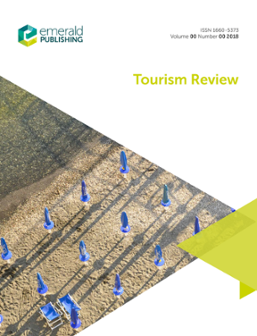Navigating Travel Risks in a Post-COVID World

Recently, I had the chance to work on this together with other researchers from the University of Mauritius. Our study titled "Minimising perceived travel risk in the aftermath of the COVID-19 pandemic to boost travel and tourism" provides valuable insights into how the pandemic has influenced travel intentions and behaviours. Our work was published in Tourism Review, the oldest and most established journal that addresses a wide spectrum of tourism issues, on 26 March 2021. Here is a brief summary.
The COVID-19 pandemic has undeniably reshaped the world, and the travel industry is no exception.
We surveyed 217 international outgoing tourists at the Mauritian International Airport and conducted interviews with a global sample of tourists. The aim was to understand the perceived travel risks in the aftermath of the COVID-19 pandemic and how these perceptions influence travel intentions.
The findings revealed that for tourists willing to travel post-COVID-19, their travel intentions are likely influenced by their perceived risk associated with the pandemic. Several key factors were identified as predictors of perceived travel risks, including:
- COVID-19 status of the destination
- Quality of transportation services
- National sanitary measures in place
- Availability and quality of health-care services
- Accommodation services
- Availability of ecotourism facilities
Interestingly, the study found that the impact of these factors on perceived travel risk is likely moderated by the trustworthiness of the information available to the tourists.
These findings have significant implications for all stakeholders in the travel industry. For researchers and policymakers, it provides a framework to better understand and predict travellers’ behaviour in times of pandemics. For tourism marketers, transport providers, and hospitality service providers, it offers insights into how to effectively manage and mitigate the effects of such events.
In a world where the only constant is change, understanding these shifting dynamics in travel behaviour is crucial. As we navigate the new normal, it's clear that the travel industry must adapt to meet the evolving needs and concerns of travellers. This includes ensuring the safety and well-being of travellers by implementing robust sanitary measures, providing reliable transportation and accommodation services, and offering comprehensive information about the COVID-19 status of the destination.
The study also highlights the importance of trust in information sources. In an era of information overload, travellers need to be able to trust the information they receive about their intended destinations. This means that travel providers and tourism boards need to ensure that their communication is transparent, accurate, and timely.
The research provides a comprehensive model grounded in social cognitive theory and protection motivation theory to understand the predictors of perceived travel risks in relation to COVID-19 at a destination. This model can serve as a guide for future research and policy-making in the field of travel and tourism.
In conclusion, the COVID-19 pandemic has brought about significant changes in the travel industry. By understanding the perceived risks and concerns of travellers, industry stakeholders can better adapt their services and policies to meet the needs of the post-pandemic traveller. As we move forward, it's clear that the ability to adapt and respond to these changes will be key to the industry's recovery and future growth.